The Davis Energy Economics Program (DEEP) supports economic research on all aspects of the energy industries, spanning fuels markets, energy consumption, electricity regulation and deregulation, vehicle markets, and emissions trading. The Program is centered around a core group of six faculty and draws participants spanning several units across UC Davis, including Economics, Agricultural and Resource Economics, Environmental Sciences, and the Institute of Transportation Studies. DEEP provides an intellectual hub through which the Davis energy economics community, industry, and policymakers gather and exchange ideas, research, and information on the challenges and opportunities facing today’s energy sector.
“DEEP supports economic research on all aspects of the energy industries, spanning fuels markets, energy consumption, electricity regulation and deregulation, vehicle markets, and emissions trading.”
Key Accomplishments 2016
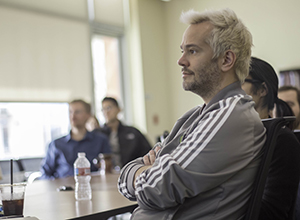
Hosted Weekly Meetings and Seminars with Invited Guests
DEEP hosted weekly lunchtime meetings with key guests from industry, government, academia, and the press. These lunches provide a forum for DEEP faculty to meet and discuss energy issues and research with UC Davis graduate students and stakeholders. DEEP also hosted an Energy and Environmental Economics seminar series during fall quarter. The weekly seminar series featured presentations from leading academics from around the world.
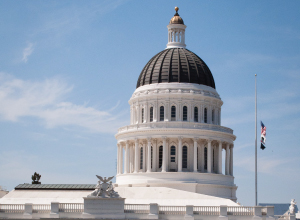
Provided Short Courses to Key Stakeholders
DEEP provided one and two day courses on the economics of regulation, energy and the environment. Attendees included key state agency and legislative staff from California, Oregon and Washington, as well as many industry participants. A special two-day course held last December for California legislative staff on the economics of climate regulation had over 40 participants from key California Senate and Legislative offices and committees.
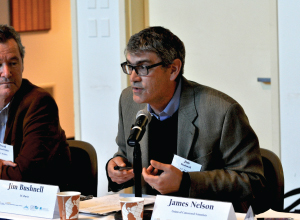
Participated in and Organized Research Workshops on the Electric Utility of the Future
DEEP, in conjunction with partners at the University of Chicago, and the National Bureau for Economic Research (NBER) organized a series of research and policy meetings on the topic of the electric utility of the future. These efforts have been supported by the Sloan Foundation. The first meeting was held at Berkeley in March 2016 and the second at the University of Chicago in October 2016. These meetings brought together academics, industry practitioners, regulators, and policy-makers in collaborative workshops. The workshops explored the technical and economic challenges for electricity distribution systems caused by increasing adoption of distributed energy resources, including solar PV, distributed storage, and electric vehicles. This initiative is also supporting a series of small research projects by faculty at UC Davis and elsewhere. Research results will be presented in workshops in 2017 and future years.

Published Research Results to Advance the Field
DEEP faculty published the results of their research on a number of topics this past year. A few of these research projects/papers are listed below.
- Machine Learning from Schools about Energy Efficiency—David Rapson and colleagues studied the impacts of energy efficiency investments at public K-12 schools in California. By developing a novel machine-learning approach they found that energy efficiency projects reduced electricity consumption between 2 to 5% on average, which can result in substantial savings to schools.
- Residential Building Codes Do Save Energy—Kevin Novan, Aaron Smith, and a doctoral student analyzed hourly smartmeter data and found that the average single-family house built just after 1978 uses 13% less energy for cooling than a similar house built just before 1978.
- Generation Green: Renewable Electricity in the United States—James Bushnell and Kevin Novan surveyed the recent history of renewable electricity and its impact on power markets and energy policy in the U.S.
- Electricity Prices, Groundwater, and Agriculture: The Impacts of Electricity Subsidies in India—Katrina Jessoe and a colleague from the World Bank found that electricity subsidies meaningfully increase groundwater extraction, impacting agricultural output and crop composition.
- Policy Shocks and Market-Based Regulations: Evidence from the Renewable Fuel Standard—Cynthia Lin, Aaron Smith, and a colleague from Iowa State University estimated the effect of three ‘policy shocks’ that reduced expected biofuel mandates in 2013.
“DEEP provides an intellectual hub through which the Davis energy economics community, industry, and policymakers can gather and exchange ideas, research, and information on the challenges and opportunities facing today's energy sector.”
Key Projects 2017
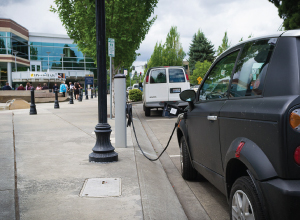
Continue to Develop Research Portfolio on Electric Vehicles
For the past several years, DEEP researchers have been working with UC Davis colleagues and the California Air Resources Board to better understand a variety of issues surrounding vehicle choice and usage, including plug-in electric vehicles in the secondary market and the impact of electric vehicle rebate programs. In 2017, as part of a UC Davis Caltrans research grant, David Rapson and Erich Muehlegger will use a rich dataset of electric vehicle purchases to examine the distribution of greenhouse gas abatement benefits and costs in California. In addition, David Rapson and Erich Muehlegger will be partnering with the Caltrans and the Air Resources Board to better understand environmental justice and barriers to low-income electric vehicle adoption.
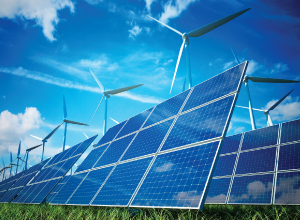
Conduct Research on the Economic and Physical Challenges for Electricity Distribution Systems
DEEP is pursuing funding from the Sloan Foundation and other sources for a more extensive empirical research project that is attempting to measure and document the impacts of distributed energy resources on the distribution systems of California Utilities. A major component of this project will be to consolidate and combine a disparate set of datasets on distribution system configurations, investments, and performance with other datasets on the locations of electric vehicles and other distributed energy resources.

Conduct Research to Understand Household Participation in Energy Efficiency Programs
Despite the generous subsidies available to homeowners, participation in energy efficiency programs remains low. Partnering with Sacramento Municipal Utility District (SMUD), Kevin Novan and Aaron Smith will conduct a randomized controlled trial to evaluate an informational program that targets recent movers. This research will provide a nuanced understanding of how targeting information towards recent movers will affect households’ decisions to participate in different energy efficiency programs. By doing so, we hope to provide guidance on how SMUD, and other utilities, can more effectively target their energy efficiency programs to encourage participation.
For more information, please visit the Davis Energy Economics Program.

